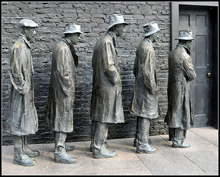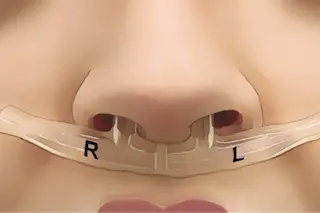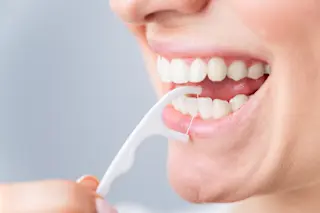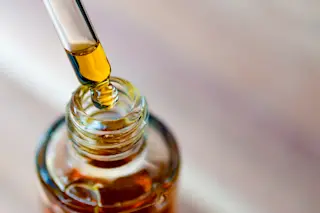One thing we might have to look forward to should we fall deeper into a recession—a boost in public health. Americans were healthier during the Great Depression than the stronger economic periods surrounding the slump, according to a surprising new study. Researchers studied life expectancies, mortality rates, GDP, and unemployment rates from 1920 to 1940.
The team found an inverse association between economic health and population health: Life expectancy fell during economic upturns and increased during recessions. Mortality, meanwhile, tended to rise during economic upturns and fall during recessions. Deaths related to flu and pneumonia, for example, fell from about 150 per 100,000 people in 1929 to roughly 100 per 100,000 people in 1930, the researchers report online today in the Proceedings of the National Academy of Sciences [ScienceNOW Daily News].
The researchers won't say for sure why this is, but they
offer several theories. When the economy is growing, people tend to sleep less and smoke and drink more. They also engage in more strenuous labor, endure more work stress and breathe more polluted air. Traffic and industrial accidents rise [Los Angeles Times].
The one exception, of course, is suicides. As times get harder suicides go up, but during the time period studied they accounted for less than 2 percent of all deaths.
Related Content: 80beats: Stats Suggest Recession Prevented Over 70K Babies From Being Born 80beats: Pop Music & Blogs as Indicators of Gross National Happiness 80beats: What Does the Economic Crisis Mean for the Green Tech Sector?
Image: flickr / Tony the Misfit














